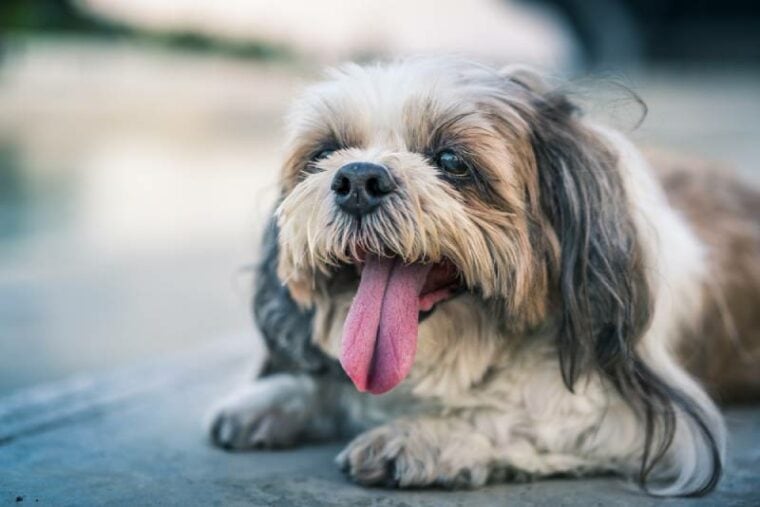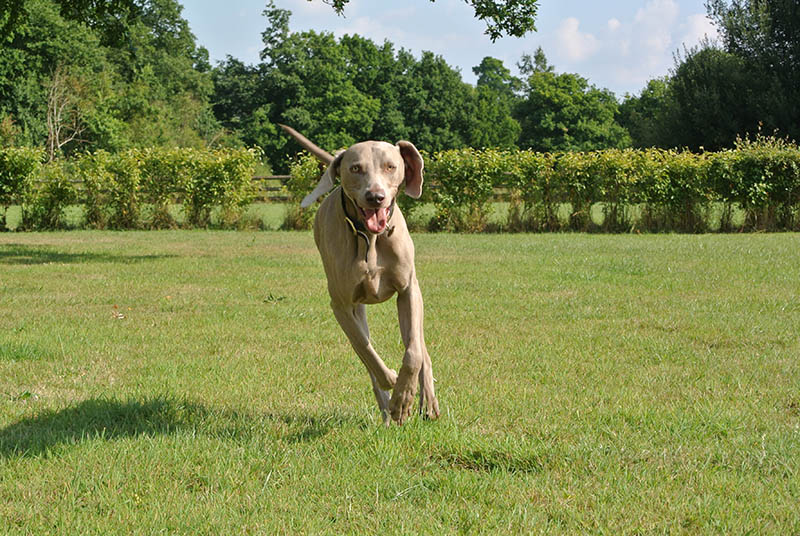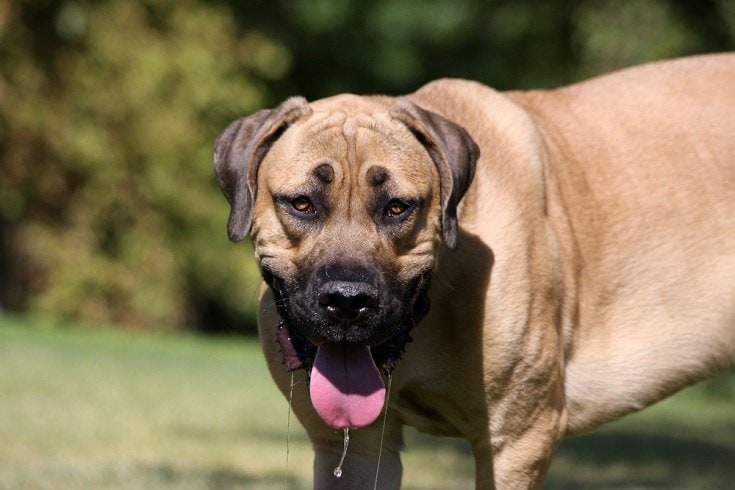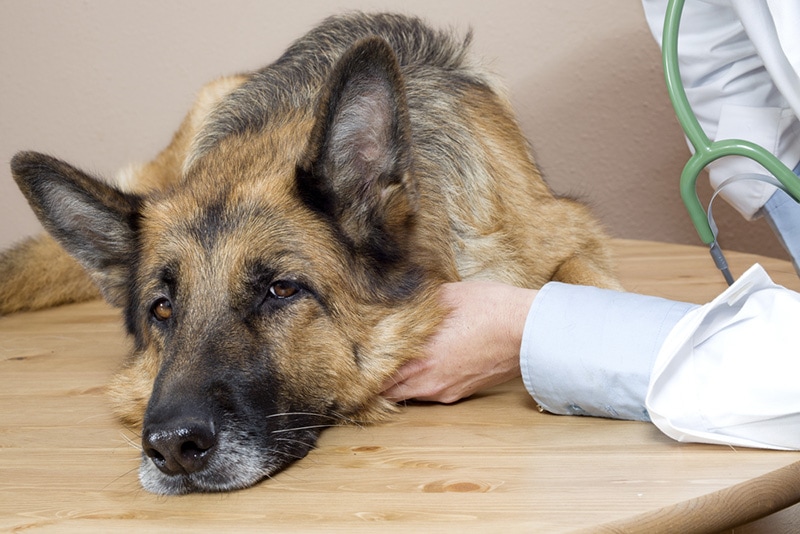
Dogs usually pant to cool down but there are many other reasons that a dog will pant, including excitement and stress. Some of these reasons are perfectly normal while others could be cause for concern. The latter is more likely if the panting is excessive and/or accompanied by other signs. Here are six common reasons that a dog might pant.
The 6 Reasons Your Dog is Panting so Much
1. Excitement
A dog can quickly start panting as a way to express their excited energy. Excited dogs typically pant in short bursts and display other signs of excitement, such as whining or yapping, tail wagging, and even jumping. Excited panting can happen when your dog greets you at the door when you come home, when they meet someone new, and when playing with kids in the yard. This type of panting only lasts as long as the excitement continues, so it tends to be easy to spot once you understand what makes your doggy excited.

What to Do About It: There is nothing that you need to do about your dog’s panting when they are excited. It’s a natural way of communicating their feelings and will not negatively affect your dog.
2. Stress
It is not uncommon for a dog to pant when they are feeling stressed out for any reason. Stress can be caused by various things and can be temporary or long-term. For example, your dog might become stressed out if someone they are not familiar with comes to your door, and as a result, they start barking and panting.
A dog might also become stressed because they are lonely when left at home all day because their family members are at school and/or work. The stress that they feel will continue until their loneliness is addressed, and their excessive panting, if that’s how they end up displaying their stress, is sure to continue until then.
What to Do About It: First, you need to figure out what’s causing your dog’s stress in the first place. This can be a tough job if your dog is panting regularly due to stress buildup and not just when a stressful situation occurs. Sometimes, though, you can quickly correlate a situation with the panting, as the panting will likely start and stop as the situation does. Once you determine what is causing your dog’s stress, you’ll need to take steps to eliminate the cause or minimize it as much as possible.
3. Heatstroke
When a dog gets hot, they will pant to try to lower their body temperature. This is normal when a dog plays or spends time outdoors during hot days. They must pant because dogs do not sweat like we humans do. However, if a dog’s body temperature rises above safe levels, they can develop heatstroke, which can be fatal. If heatstroke occurs, a dog’s panting will become faster and heavier, like it’s being forced.

What to Do About It: It’s very important to take measures to prevent heatstroke- only exercise your dog when it’s cool and always make sure they have access to shade and water. Take particular care with brachycephalic (flat faced) dogs and ones with thick coats.
If your dog is showing signs of heatstroke take action straight away. Move them to a shaded, cool area and pour cool (not ice cold) water on them, contact your vet immediately.
4. Chronic Illness
Certain chronic illnesses can cause a dog to pant excessively. Respiratory illnesses like pneumonia and laryngeal paralysis are common causes of panting, as normal breathing becomes harder to do. Another illness that can cause excessive and regular panting is Cushing’s syndrome, which affects the adrenal glands. Heart disease is a common condition that typically results in signs like coughing and excessive panting. When panting is caused by chronic illness, it is likely to be regular and excessive until treatment (if possible) is administered.
What to Do About It: If your furry family member is panting regularly and/or excessively , schedule an appointment with your veterinarian as soon as possible. Make a list of signs that your dog is displaying so your vet has a clear idea of what’s going on. From there, they can administer tests to determine whether an illness is present. If a problem is found, steps can be taken to treat it and relieve the clinical signs.
5. Pain
Pain can lead to excessive or heavy panting in a dog.
Other signs of pain that may accompany panting include lethargy, a loss of interest in favorite activities, a reluctance to lie down or get up, and a loss of appetite. These may help narrow down the source of the pain.

What to Do About It: If your dog is in pain, it’s very important to figure out what’s causing it, so it can be treated appropriately. Schedule an appointment with your vet for an examination to check for possible underlying causes of the discomfort.
6. Poisoning
Excessive panting can be a sign of poisoning or an allergic reaction. For example, dogs that lick puddles on the street laced with antifreeze can become poisoned, and dogs can also get poisoned by eating chocolate or chewing on dangerous plants. Rat poison and snail bait are other common toxic compounds that can poison a dog. This is why it’s so important to keep an eye on your dog both at home and in public settings.
What to Do About It: If you suspect that your dog has been poisoned in any way, take them to an emergency vet as soon as possible. If you’re unsure of whether poisoning has taken place but cannot find any other reason for your dog’s excessive panting, call your vet immediately for insight and recommendations.
Conclusion
Dogs most commonly pant when they are hot and are trying to cool down but there are other reasons that your dog might be panting. If it’s temporary, it is likely a benign reason, like excitement. If the panting continues and is accompanied by other signs of distress, it may be due to a more concerning reason. Keep in mind that your veterinarian is a reliable source of care and guidance, so never hesitate to call or see them if you are worried about your pet.
Featured Image Credit: opalledo, Shutterstock







